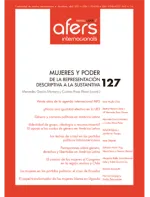The transformative role of women leaders in the fight against corruption in Uganda

Norman Sempijja, Profesor de relacionales internacionales, Facultad de Derecho, Universidad de Navarra (España). nsempijja@unav.es. ORCID: https://orcid.org/0000-0002-1386-5666
Emilija Žebrauskaitė, Estudiante de Relaciones Internacionales y miembro del centro de investigación de Asuntos Globales y Estudios Estratégicos, Universidad de Navarra (España). eebrauskait@alumni.unav.es. ORCID: https://orcid.org/0000-0001-7402-8477
Ugandan women have managed to emancipate themselves and reach key positions of power in the public sector. However, they still struggle to exert decisive influence in the fight against corruption. This mixed methodology research analyses the root causes of the corruption and their effect on the role of women in fighting this scourge. It concludes that despite achieving greater transparency, the women in power in Uganda have been overwhelmed by the collective perception that the country’s elites are engaged in corrupt practices and by the need for political survival in a patrimonial political system. Nevertheless, when given space and agency, they have been transformative. Such was the case with the fight against HIV and the changes Allen Kagina inspired in the Revenue Authority and the National Roads Authority.
Keywords: women and power, corruption, Uganda, agency, drivers of change
How to cite this article: Sempijja, Norman y Žebrauskaitė, Emilija. «El papel transformador de las mujeres líderes en la lucha contra la corrupción en Uganda». Revista CIDOB d’Afers Internacionals, n.º 127 (abril de 2021), p. 229-255. DOI: doi.org/10.24241/rcai.2021.127.1.229
>> The full text articles of this issue are available only in Spanish language